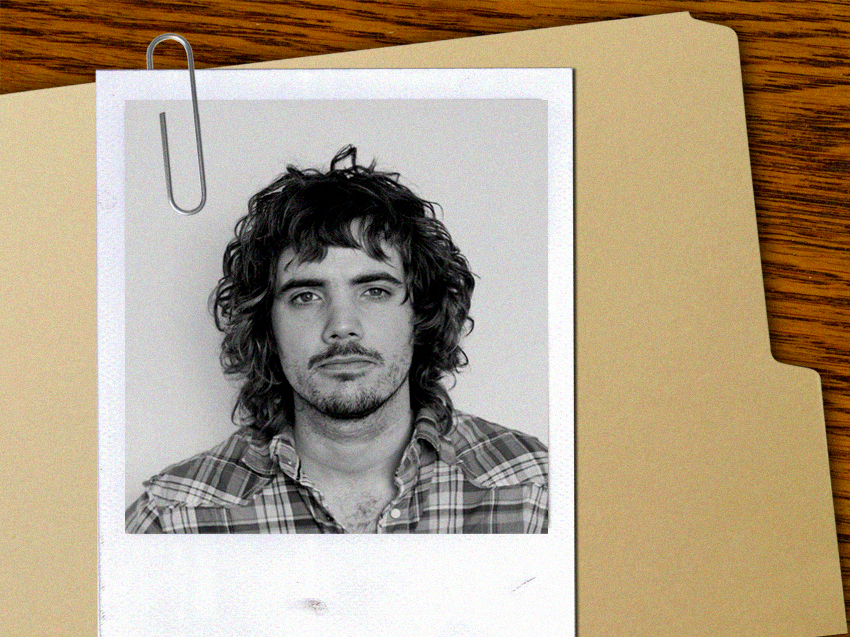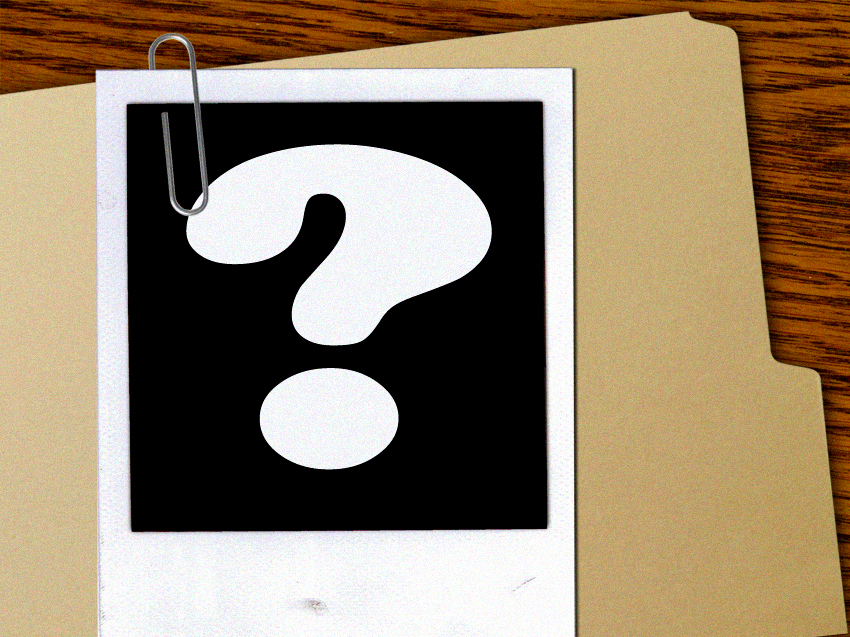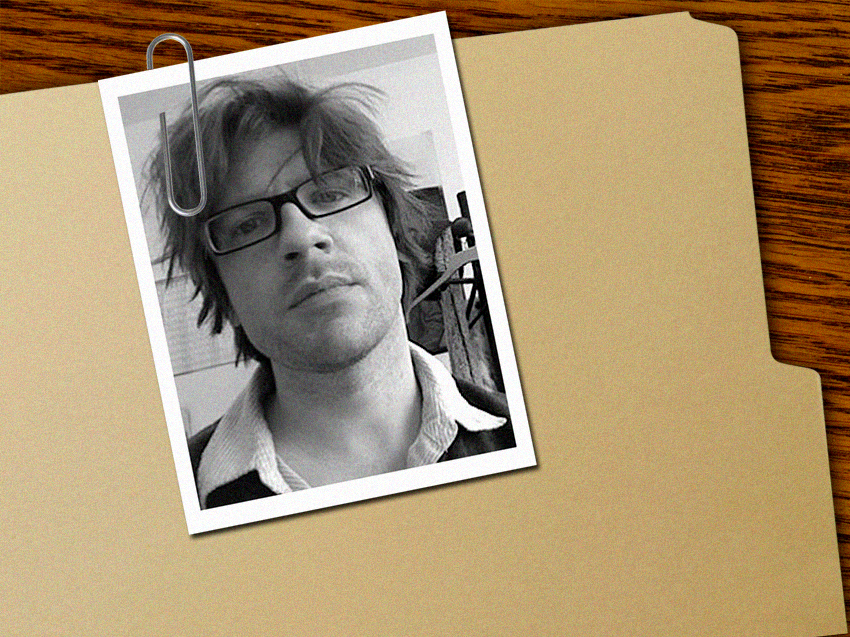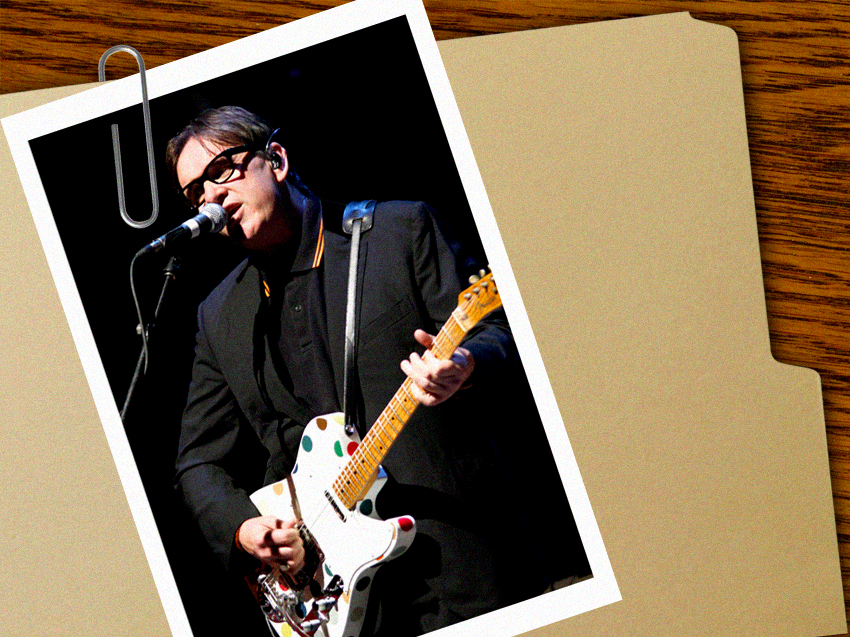How to break into the world of session guitar playing

The Player
What skills do you need in the studio?
“In the studio, you’re expected to come up with guitar parts quickly, and record them as you come up with them. What’s more important than keeping your reading up is improving your ear. I try not to listen to anything more than twice to have it down. When I left college I’d worked on my reading and I did a few theatre shows. As I got into pop sessions there was very little music in front of me. I’d be played a song without guitars, or the artist would sing the parts to me. If you get into doing film sessions and soundtracks, there would be more music reading.”
What should guitarists practise?
“Always play with other musicians when you practise. If you can’t have that, stick on a record and play along. It doesn’t matter how good you are at technique, if you can’t hold down a four chord groove and make it feel great, you’re not going to get hired.”
What gear should an aspiring session ace take to the studio?
“I use small amps; no-one wants big amps in the studio any more. I’ve got weird amps and I think that’s part of the reason people hire me, because they know I’m going to bring interesting sounds. If you want to play sessions, I’d say you need a Strat, a Les Paul, something like a Fender Deluxe Reverb and a Martin-style dreadnought acoustic.”
What’s your top tip for breaking into the session world?
“When I follow a track I’m listening to the bass and recognising intervals. Using songs to recognise intervals is handy. It’s great if you can hear a melody and instantly play it. If you play by ear rather than patterns you’ll be a lot more melodic and original.
"All I’d say is keep listening to loads of great records. Don’t learn them note-for-note, but try to understand what they’re doing, and play along and get a feel for it. Even if I’m not reading, I understand theory, so if someone says, ‘I want a dotted rhythm’, I know what they mean.”

The Director
What qualities do you look for in a guitarist?
“It’s important to have social skills. Once I’ve got the right character, it’s about being an all-rounder. There are a lot of great guitarists around who are concentrated in one particular genre. It’s essential to have a variety of abilities, be that rock, funk or acoustic.”
How important is it to read music?
“The reading side represents a small percentage. It’s handy, but that’s all. You need the ability to listen to a record and work it out. If you do a tour it’s important you get your sounds together. Strats, Teles and Les Pauls are distinctive. Artists want those sounds. It’s not good enough to come in with one guitar and cover everything.”
What about image?
“It’s not as ageist as it used to be. Your look can be older and that can work. Image is less important than it was five years ago, when everybody was obsessed with musicians looking like boy band members. Just make sure you’ve got a Strat, a Les Paul and a Fender Twin or a Vox AC30.”
Is playing in a function band good preparation for session work?
“Function gigs are great. The disciplines you learn are similar to what you need to go on tour with Girls Aloud: you’re given a set of songs to learn by ear, you can’t use sheet music and you’ve got to get the sounds. People who come from that area fit the bill better than people who come out of a rock band and are stuck in one style.”
How does a young player get a Musical Director’s attention?
“Persistence. I don’t scroll through loads of CVs. I hire people who phone and remind me. If you’re taking it seriously, move to London and get out and about at the gigs where people on the scene are around, like the Bedford [in Balham] and the Cobden Club. Chat to people. They won’t knock on your door.”
What’s your top tip for guitarists wanting to break into the session world?
“I can’t stress how important it is to be a good acoustic guitarist. A lot of the acts I work with are doing radio tours or TV shows with an acoustic guitarist. When you’re accompanying with just an acoustic, you’ve got to know how to make it work. It’s being able to strum and fingerpick properly, both styles. And you need to have a good guitar with a pickup in it.”

The Producer
How should guitarists behave on a studio session?
“Always listen to the producer. Even if they’re telling you something that you think is wrong, they will have a reason. If it still sounds wrong two or three takes in, then say, ‘I’ve got an angle on this. Will you try it?’ Be diplomatic. Don’t embellish – if they want something extra, they’ll ask you. Most producers want a simple, effective thing. And, for God’s sake, don’t tell anybody in the band how they should be playing, because you’ll be removed from the record.”
How important are metronomes?
“Fundamentally. If you cannot play to a click, you will cost me time and money. Producers expect you to be sympathetic to the song. Play along to lots of styles of rhythm track within your genre. These days, great pop music is about being tight and precise. Get used to playing with headphones on or in front of monitors.”
How many takes do you generally have to nail a recording?
“A great producer will know what they want and ask you to do it. You should be able to nail it first take, or at the worst case, third take.”
Can session players get writing credits?
“If you come up with something that changed the nature of the composition materially, you might be entitled to a writing credit and percentage, but unless it’s agreed beforehand, you will not be entitled to anything.”
What paperwork should you complete?
“Fill in your Musicians’ Union session form. On most professional sessions you will be required to sign a clearance form. If it’s a name artist or producer, you need to fill in a PPL form, which entitles you to a royalty. It can be a substantial source of income. If you’ve played on a record, you’re entitled to a certain amount every time it’s played on the radio.”
What’s your top tip for guitarists wanting to break into the session world?
“Live, you want someone who’s versatile. In the studio, you’d get a specialist to do a specific thing. I would encourage everyone to have a specialist talent, whether it’s metal guitar or acoustic picking. Approach producers by email or by phone. Say, ‘I’ve heard you’re making this kind of record. If you need someone to cover the guitars, I specialise in that style’.”

The Agent
What image do you need to get work?
“It’s a good idea to have a couple of different looks. The most important thing is to take care of the photos you submit. It doesn’t have to be a professional shot, but it has to be clear because that’s what I send to clients before an audition. Head and shoulders are good; live shots generally don’t work.”
How can musicians find an agent?
“I’m in the Music Week yearbook as a session fixer. If you want a music career, it’s the Holy Bible.”
What kind of players get work?
“I can get work for people who are adaptable, who I can put forward for more than one type of job, who are reliable and friendly. If anybody lets me down, I don’t use them again. Session agents speak to each other, so if word gets around that you’re trouble, you won’t be used. Session work is sporadic. It’s important not to change your phone number. People always put “experienced in all styles”. That can actually put clients off. Be the best you can be at what you do best.”
What should a guitarist expect of an audition?
“Make sure you’re completely prepared before you turn up. Learn the tracks properly. Know the location of the audition before you arrive. You should ask what gear you need to take with you.”
How much will an agent charge?
“It varies. I charge 15 percent [commission], and 20 per cent for an ad or a film because they’re a lot of work, plus VAT. You only pay me if you get work. It wouldn’t be fair otherwise. I can’t guarantee that you’re going to get any work. Some agents demand to represent you exclusively. That’s absolutely wrong.”
What’s your top tip for guitarists wanting to break into the session world?
“Put what you’ve done most recently at the top of your CV. People seldom read all of it. I need to know that you have been gigging. Say whether you play electric or acoustic, and any secondary instruments. People often request guitarists who can do backing vocals, so if you do, say so. A MySpace page or website is useful, and a couple of YouTube videos so people can see how you perform live. Keep your CV to one page. People don’t need exam results, unless you’ve studied music at college. Say if you can read music as well.”

The Writer
What kind of guitarist makes a good songwriting collaborator?
“As long as someone’s melodically interesting, guitar skills aren’t really that relevant. As long as they’re enthusiastic and they’ve got a good foundation, it’s not all about being masters.”
Would you say that it’s common for guitarists to over-complicate things?
“With a lot of people that have a huge amount of talent it’s very difficult to get them to calm down and give me the basics. I certainly don’t have a problem with somebody being clever. I think it’s intriguing, but it’s not something I go out and look for. I write with anybody who has the ability to have a bit of fun.”
Is the most important part of the song the vocal and the lyric?
“Well, as a lyricist I would say that. I think it’s whatever suits the singer’s voice. I’ve got a short register, so everything I sing has to be within that framework or it sounds a bit ridiculous. Depending on who you’re writing for, it’s good manners to keep it simple.”
How important is it for guitarists to bring in different sounds and effects?
“Most of the songs I write are written on acoustic, and all the sweet stuff is put on in the demo or production form. One of the best people I know in that field is Leo Abrahams, who’s just an incredible textural player. He builds a wonderful foundation for you to work with. That’s a huge skill.”
What’s your top tip for breaking into the session world?
“Songwriting is about listening and observing the person you’re working with, and being generous. It’s really important that you feel what the other person is feeling, and try to be a ground rod for their emotions. You’re dealing with feelings when you’re writing songs, so it’s got to be with somebody who’s going to be kind, gentle, open and honest, yet take a risk at the same time. I like to write with people who’ve got those attributes.”

